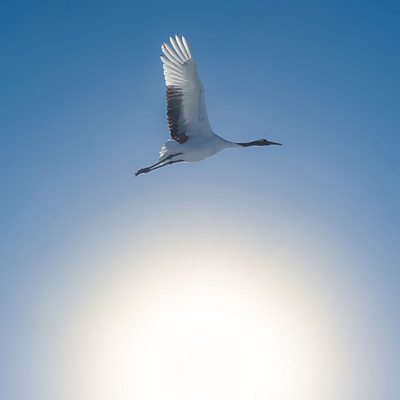Episode details

Available for over a year
The strip of water that separates southern England from Northern France is called ‘the sleeve’ in many European languages, referring to its shape. Historically named the English Channel in the UK, this is an arm of the Atlantic Ocean, choppy, busy, cold. And at its narrowest point, only 21 miles wide. So far in 2025, 25,000 people have crossed from France to southern England in little boats. And notwithstanding the fact that just under 70% have their claim for asylum accepted, the journey is hazardous, and the exploitative trade run by smugglers today is up 48% so far on last year. The political debate is often polarised, heated and permanently urgent regarding what should happen practically. The ‘push’ factors of persecution in the countries with the largest number of travellers – Iran, Afghanistan, Iraq and Syria- combine with the ‘pull’ factors that the French President Emmanuel Macron identified last month as the UK’s ‘informal economy’ making it easier to work without papers. A variety of policy solutions are offered and lobbied for: ranging from identity cards, re-patriation schemes, or the provision of safe and legal alternative routes. Organised religion must acknowledge its own culpability in generating the despair that leads people to put their families into leaky boats. From the time of the Huguenots who crossed the English Channel in the 1570s in great numbers, the misuse of religious power by Christians and many other religions has to be confronted before any reflections on more philosophical themes can be credible. But the operation of bad religion doesn’t negate a proper consideration of the themes that spiritual practice reveals. Christian belief insists that inherent dignity, purpose and worth are inalienable aspects of the human condition. This dignity is universal and irreducible. The application of market principles to the fear and despair of people fleeing persecution introduces a fundamental challenge to this principle: a challenge which results in the commodification of people who, akin to the modern slave trade, can be bought, sold, trafficked and exploited. But these are human beings, for whom God insists there can be no price. And in this market, there has been no ‘invisible hand’ to save many from drowning in sight of the shore. In its extreme and dramatic images, the smuggling of people across the Channel holds up a mirror to the way we live now, demanding that all of us, by way of opposition to this trade, hold to the principle of innate and inherent dignity for everyone without exception always. And to oppose the corrosion of this principle wherever we find it weakened, not only in the life-threatening practice of trafficking, but in every transaction that threatens to diminish that dignity, whatever the work and whatever the cost.
Programme Website